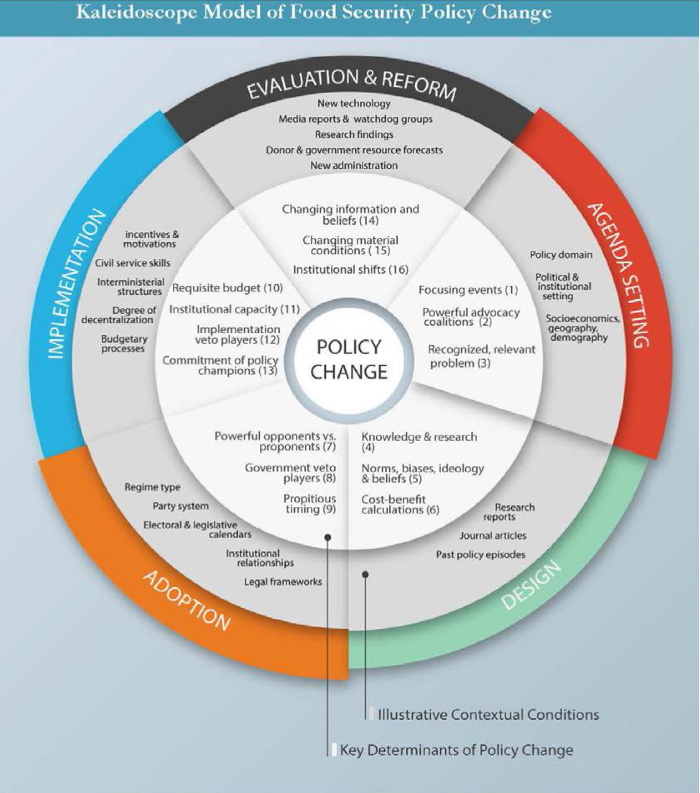C3. Policy Systems Analysis
Global Collaborative Research on Support to the Policy Process and Policy Capacity
FSP conducts global collaborative research on policy capacity-building and coordination mechanisms at country and regional levels, as well as ways to measure improvements in policy capacity and policy systems. Activities under this component inform, and are informed by, activities under components 1 and 2.
C3 addresses the fundamental questions of how to achieve policy change.
To do so, the C3 team has focused on four major activities.
Activity 1: Conceptual framework
The current emphasis in the development community on demonstrating policy impact requires a better understanding of national policymaking processes to recognize opportunities for, and limits to, generating policy change. Thus, the major focus of C3 team in years 1 and 2 of FSP, involved deriving and refining an applied framework (Kaleidoscope Model) to generate testable and operational hypotheses about key factors influencing policy change, with a specific emphasis on agriculture and nutrition policies.
Activity 2: Case studies
The key under this activity, involved conducting in-depth case studies of policy change (fertilizer policy in Ghana, Tanzania and Zambia and micro-nutrient policies in Malawi, South Africa and Zambia) to test the rigor of the Kaleidoscope Model across different policy domains and disparate institutional, political, and economic settings.
Activity 3: Changes in policy architecture
This activity focuses more broadly on efforts to reform food security policy systems by analyzing how different experiments with institutional reforms (e.g., coordinating units, service delivery units, devolution of agricultural ministries) have emerged and how reform of policy institutions has altered incentives, stakeholder motivations and policy outcomes. The expected outcomes are improved understanding of factors triggering change in food security policy processes and policy architecture and how these alter policy outcomes. This activity will also generate practical lessons for reforming policy architecture and policy processes.
Activity 4: Policy engagement
This involves applying a range of tools in a variety of settings including international policy forums, national stakeholder workshops, CAADP-Malabo Declaration follow-up processes and implementation of regional input policies in West Africa. Drawing on findings that cut across all activities, the team is developing a series of web-based tools for policy process analysis, training and policy engagement, and conducting a comprehensive policy stocktaking and mapping of the post-Malabo food security policy context in Malawi (year 4) and Ghana (year 5).

The outcomes include an improved and widely shared understanding of the factors that encourage or inhibit policy change, of lessons learned and best practices drawn from past experience in building capacity for policy analysis and dialogue, and innovative approaches for measuring and monitoring improvements in policy analysis capacity. These outcomes are achieved through lesson-rich case studies undertaken in collaboration with local researchers and stakeholders, review of cutting-edge literature, and participant evaluation of previous policy analysis capacity-building projects.


